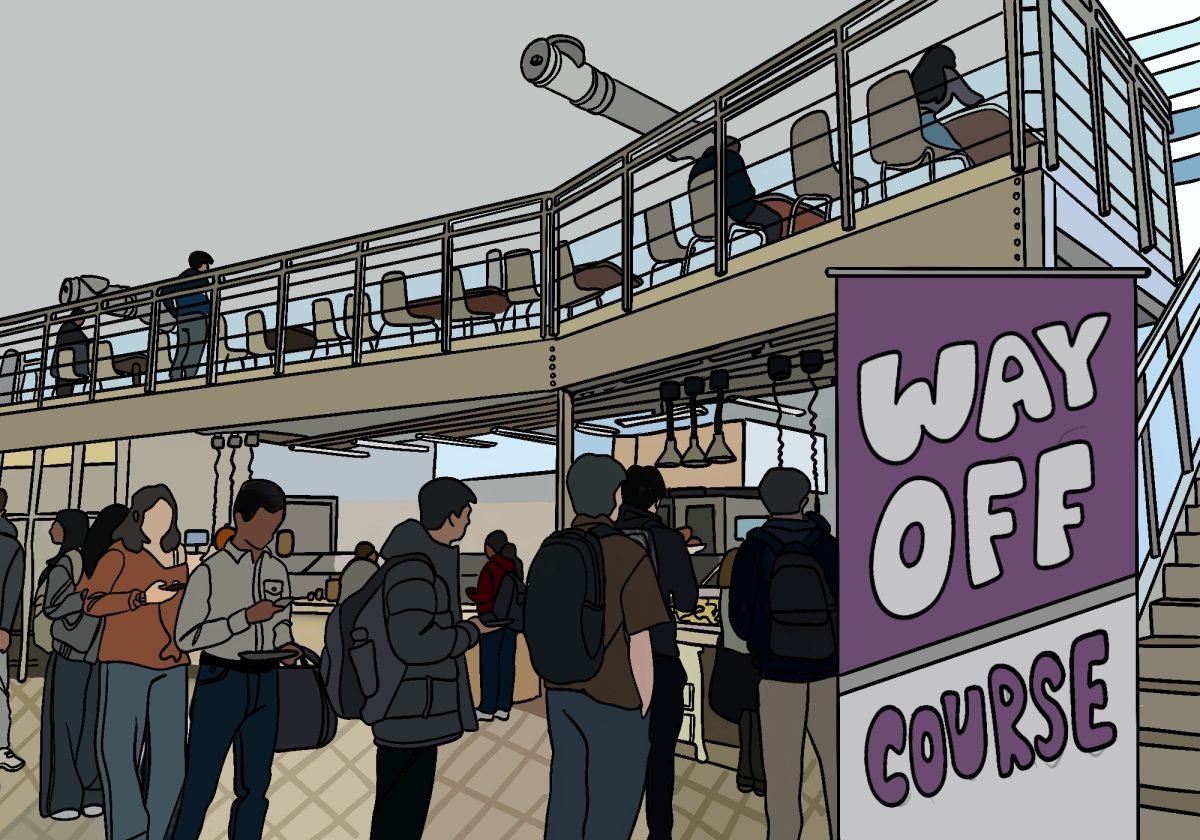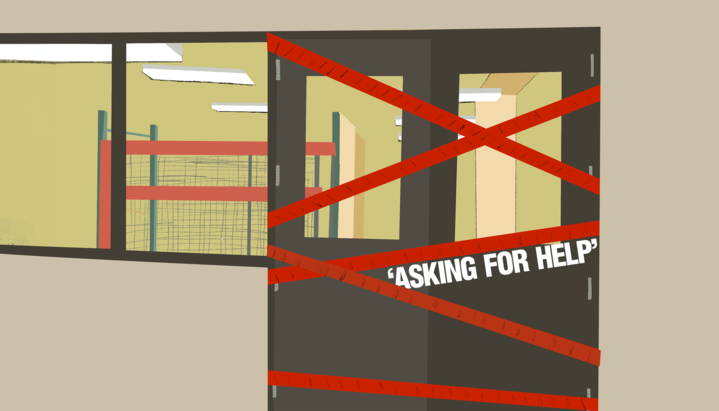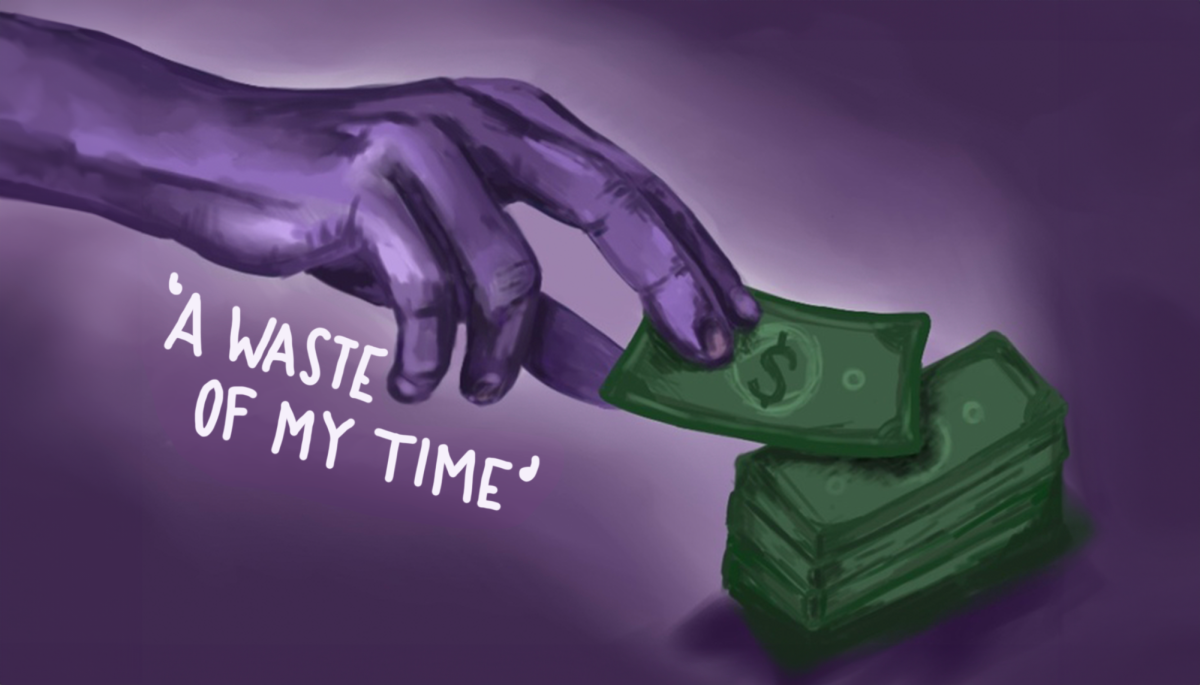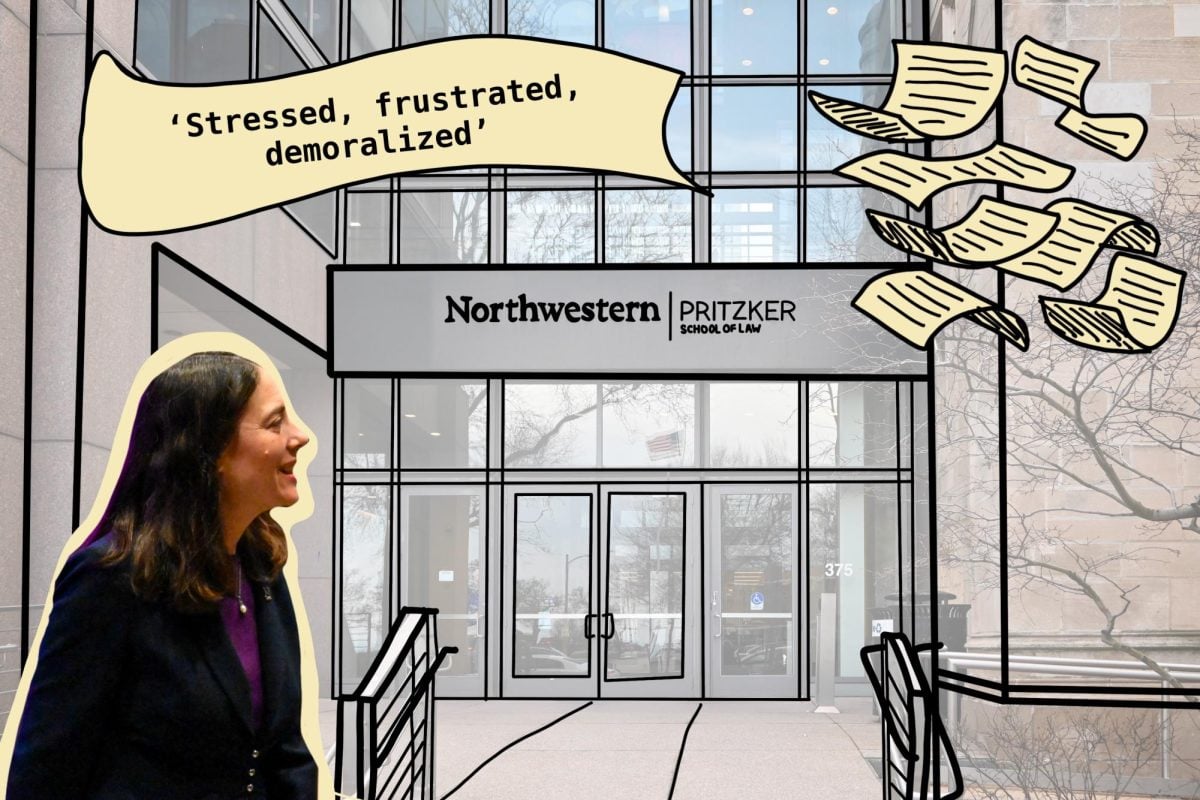In the typical Northwestern student’s schedule of classes, meetings and practices, finding time to write a class paper can be hard to manage.
For one Weinberg junior, who spoke on the condition of anonymity, plagiarism was the answer.
“It seemed like it was the end of the world, and there was no way I was going to get the paper done,” she said. “It was already two in the morning. It seemed like the only option.”
She paid the consequences with a quarter-long suspension last winter. Her offense put her in the ranks of an increasing faction of Northwestern students who have fallen prey to the temptations of plagiarism.
In recent years, Weinberg officials investigated about 80 cases of possible academic dishonesty per year, according to Mark Sheldon, assistant dean. Last year, that number jumped to 106 cases.
In the 2009-10 school year, SESP adjudicated three cases of academic dishonesty, McCormick saw 17 cases and the School of Communication investigated about 10 cases. A Medill official declined to release the school’s number of cases, and Bienen officials did not return requests for information.
Many students interviewed for this story said they were aware of cheating at Northwestern or had cheated in the past. Most said they viewed occasional incidents of cheating as something they would prefer to avoid but not something to which they were morally opposed. All declined to comment publicly to avoid being linked to incidents of academic dishonesty.
“I really don’t feel bad. I don’t feel like I’m hurting anyone.”
– Anonymous Weinberg sophomore
“If it’s due in half an hour, I know I don’t have time to do it, so I’ll find somebody who’s better with words,” said a Weinberg sophomore, who spoke on the condition of anonymity. “I really don’t feel bad. I don’t feel like I’m hurting anyone.”
So why is the number of academic dishonesty cases increasing? It may be that more students are turning to online resources in search of time-savers when deadlines are fast approaching, officials said. Meanwhile, increased use of anti-plagiarism technologies may be catching more cheaters in action, which drives up the number of reported offenses.
The University has implemented changes such as requiring incoming Weinberg freshmen to write an essay on plagiarism and encouraging more discussion on integrity in freshman seminars.
Plagiarism in perspective
Dishonesty in higher education has become pervasive, said Donald McCabe, a business professor at Rutgers University who researches academic integrity.
“Students have said they feel free to engage in Internet plagiarism,” McCabe said. “It’s a time-management tool. Students feel like they have so many other demands, so anything they can do to minimize time on writing assignments, they will.”
In one of McCabe’s studies, he distributed questionnaires with 10 different actions and asked students to mark what they considered cheating. He said results were varied, but about 50 percent of students interviewed only marked 5 out of 10 actions as cheating. He said collaborating on homework was rarely considered cheating, while fabricating sources was widely considered a serious offense.
“It’s a cultural thing…We don’t take cheating seriously. We steal music and movies; we cheat on our taxes. We’ve gotten used to just taking what we want.”
– Karrie Snyder, NU sociology lecturer.
“It’s a cultural thing,” said Karrie Snyder, an NU sociology lecturer. “We don’t take cheating seriously. We steal music and movies; we cheat on our taxes. We’ve gotten used to just taking what we want.”
The Chronicle of Higher Education recently published an anonymous essay from a man who claimed to work at a paper-writing service that employs about 50 writers producing everything from book reports to theses for high school and college students. He has written 5,000 pages in the past year alone and makes roughly $66,000 per year, he wrote in the essay.
Academic integrity issues appear to be prevalent among even the most prestigious universities. Stanford University had 123 cases last year, while Duke University had 42, according to their respective offices of student affairs.
While paying for a paper is an extreme, some NU students said they see shades of gray in academic honesty.
For example, test files are collections of old exams from years past that have been sorted by course and organized in a database. Some sororities, fraternities and residential colleges have test files that are accessible only to residents. Though Dean Sheldon said the test files are not technically cheating, they have been a topic of controversy for several years.
Gabby Daniels, Associated Student Government academic vice president, said she has gotten complaints from students who do not have access to test files and believe they give an unfair advantage. Aside from that, she said it was not “that big of a problem.”
“It’s not a secret that they exist,” Daniels said. “It wouldn’t be wrong to look at the test of a professor who changes the test every year. That helps you learn the style of the test. I don’t think a lot of professors would consider that cheating.”
Some students consider peeking at others’ papers during exams to be a minor offense.
“If there’s a test I haven’t studied for much, I’ll sit next to somebody who knows the answers and I’ll glance at his paper,” an anonymous Bienen freshman said. “It’s not a big deal for me.”
Sophomore Brian Lee said he has heard of “blue book cheating” In his larger classes. Lee said he has seen students ask their teaching assistants for an extra booklet during a test. A student can then sneak the blue book out of the room, fill it with notes or equations and bring it into any test that uses blue books on another day. Sheldon has also seen cases of cheating involving blue books.
“I had a student who smuggled blue books out of the exam, forged the TA’s grading in a new set of books and then slipped them under the instructor’s door a few days later,” Sheldon said. “A faculty member puts a lot of energy into teaching a good course, and students are taking advantage in a way that hurts themselves, hurts other students and hurts the University.”
A history of opposition
NU first started cracking down on cheating in 1990, when the Office of the Provost mandated the formation of the Undergraduate Academic Conduct Committee. The committee consisted of four undergraduate students and five faculty members, according to University archives.
The committee produced the Academic Integrity Guide, which has been republished every year since with no major changes, said Dan Garrison, a retired classics professor who was general editor of the first guide.
“We thought that it was a serious problem,” Garrison said. “Students have this sense that they have to get good grades and hold a 4.0. They use cheating to keep their grades up.”
When a professor suspects a violation of the code in any Weinberg class, he or she is obligated to report it to the dean. Sheldon then calls the student in for a one-hour meeting, during which he determines whether or not a breach of code has actually occurred.
If Sheldon finds a student guilty, the “basic sanction” is a one-quarter suspension, but consequences range from a letter of reprimand to expulsion from the University depending on the nature of the offense, Sheldon said. A less severe incident would be a few sentences in a research paper that unintentionally lack attribution, while copying another student’s lab report would be a more serious offense, the dean said.
“We’re not ogres here,” Sheldon said. “I try to be as supportive as I can. One thing I’ve learned is that, a lot of times, students are in a very stressful situation, and it’s something that should have
been tended to anyway.”
Non-Weinberg students suspected of cheating in non-Weinberg classes are redirected to the deans of their respective schools for a sanction. The University has stressed to faculty the importance of reporting possible incidents, according to Ron Brautigam, the associate provost for undergraduate admission. He said the increase in communication may have led to the rise in reports, but cheating is still a concern.
“It’s very easy now to go online and do research, and then forget where you found it,” Brautigam said. “It is a challenge, and it’s going to remain a challenge in the foreseeable future.”
A new line of defense
NU has instated a number of preventative measures to ensure that essays are not plagiarized. In the spring of 2005, the provost’s office approved funding for SafeAssign, a system that filters papers by comparing them to papers on the Internet. Fifty-five percent of private four-year colleges nationwide now use some form of anti-plagiarism software, according to the 2010 Campus Computing Survey.
SafeAssign is an extension of Blackboard, so that when students submit a file to a course’s Blackboard page, it is also filtered by an NU database and compared to papers handed in by current and former students.
The University recently purchased a database from a paper mill, said Brian Nielsen, who works in academic technologies for NUIT. If a student attempts to use a paper from this mill, which Nielsen would not identify, SafeAssign will find it.
“There’s no easy way for students to get around it,” Nielson said. “The way that its algorithm works, it calculates the probability of particular words in a sentence already in existence. So even if you just change the words in the sentence, SafeAssign will still detect that.”
The Weinberg junior who was suspended for a quarter for plagiarism had used the paper of a fellow student as a guide in writing her own. After submitting the essay to SafeAssign, she was told 60 percent of it was detected as having copied material. She immediately met with her professor to confess and was redirected to the dean’s office.
“The professor said he appreciated my honesty, because some of the time he doesn’t even check his SafeAssign,” she said. “That made me feel really dumb, because I probably could have gotten away with it.”
Prof. Shelby Hatch, who teaches chemistry, has been using SafeAssign in her classes for five years. In her chemistry 101 and 171 classes, she finds plagiarized material in less than 1 percent of assignments. Before a student even submits a paper in her class, a message warns students their papers will be vetted for academic validity. Hatch believes the message contributes to the low frequency of plagiarism she sees.
“I have over 800 students each quarter, so there’s no way to verify that each individual submission is unique without an electronic aid,” Hatch said. “It’s surprising that anyone would attempt to use someone else’s paper without citing it when a warning is on the site.”
Still, Hatch said she sees other kinds of cheating. She once caught a student who had programmed an entire textbook into his calculator.
This year, Weinberg mandated for the first time that freshmen write an essay on plagiarism before coming to campus. The essay was part of a required summer assignment for every Weinberg freshman.
Assistant Dean Lane Fenrich said he hopes to continue the essay for next year’s class.
“There was a lot of evidence that incoming students really don’t understand what constitutes plagiarism,” Fenrich wrote in an e-mail. “Although we’ve always distributed a copy of the University’s policy on academic integrity and asked Fall Quarter freshman seminar instructors to address it in class, we wanted to do more to get students thinking about plagiarism, how it can be avoided and why it matters.”












